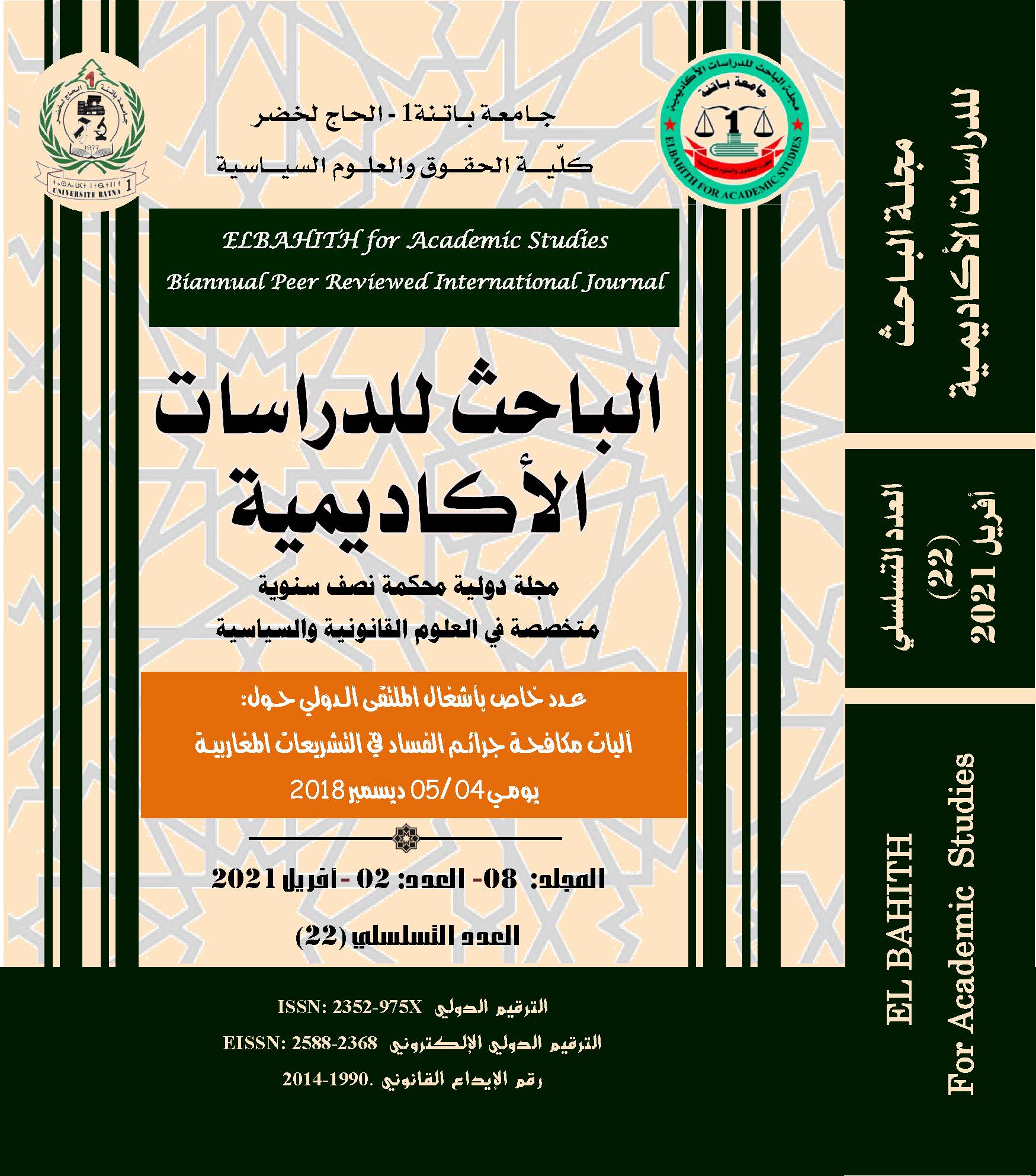Strategy for the Detection of Corruption Crimes in Special Investigative Techniques in Algerian Law
DOI:
https://doi.org/10.59791/efas.v8i2.1162Keywords:
Law 06-01, intercepting correspondence and recording of votes, taking pictures, controlled delivery, penetration and electronic surveillanceAbstract
Corruption has become a threat to the sovereignty of States to spread in all public and private sectors, which has had a negative impact on the basic services of citizens and the good conduct of the economy. Accordingly, the international community, headed by the United Nations, the first phenomenon of corruption is particularly important in his initiatives and programs of work In order to combat corruption crimes, the legislator introduced a set of special investigative techniques in addition to those traditional methods. These methods were called "special investigative techniques". The aim of these methods is to expose these crimes, eradicate corruption and deter spoilers.
These methods are contained in the amended Code of Criminal Procedure, which is supplemented by Law No. 06-22 of 20 December 2006, in Articles 65 bis 5 to 65 bis 18 and 56 of the Prevention and Control of Corruption Act No. 06-01 of 20 February 2006, article 56 has authorized the use of special investigative methods of controlled delivery, penetration and electronic surveillance. Therefore, these methods must be explained and how these methods, which are surreptitiously violated, can be reconciled with the violation of the freedoms and rights of individuals, The privacy of individuals and confidentiality of correspondence is constitutionally guaranteed.
Downloads
Published
How to Cite
Issue
Section
License

This work is licensed under a Creative Commons Attribution-NonCommercial-NoDerivatives 4.0 International License.





